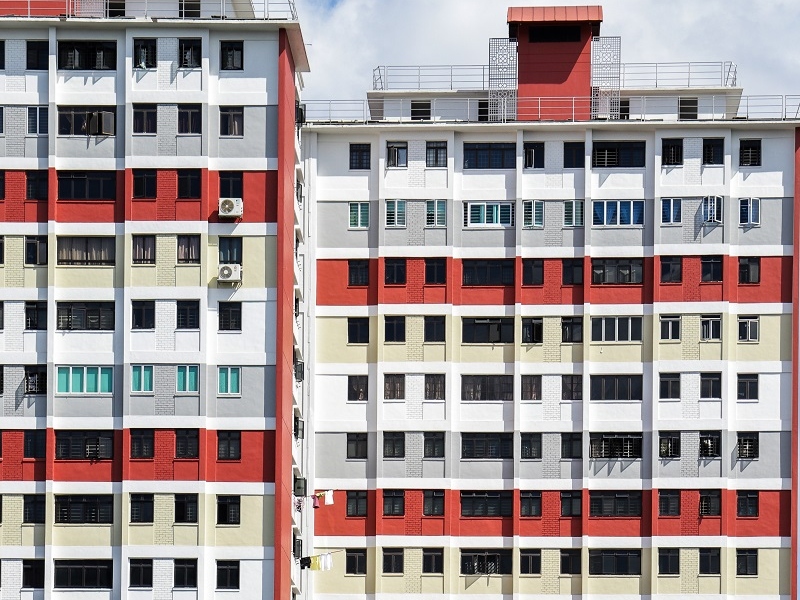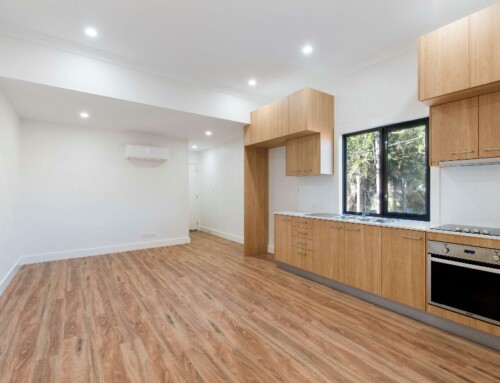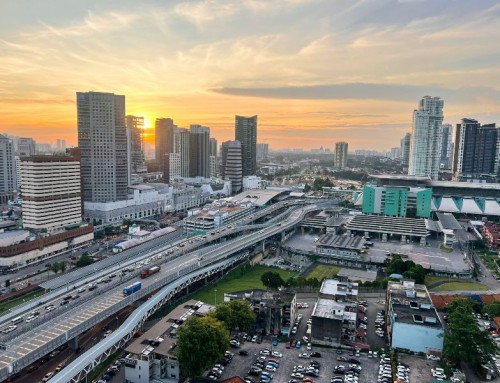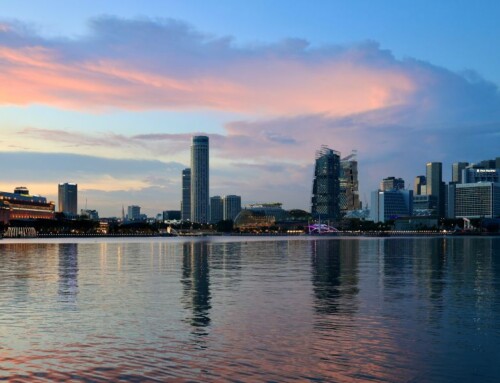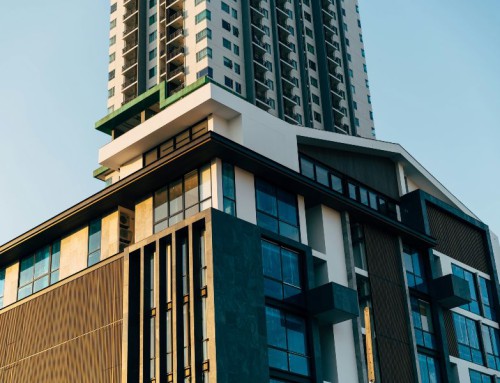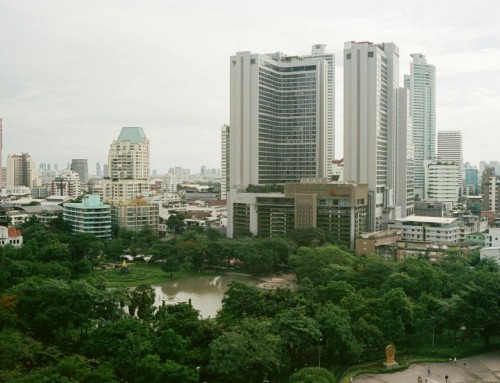The government is a major player in the Singapore property market and a couple of days ago, on 11th September 2019, the Minister for National Development Lawrence Wong announced several changes to the public housing schemes. The Enhanced CPF Housing Grant and higher income ceilings for buyers of Build-To-Order (BTO) flats and Executive Condominiums (EC) are designed to make public housing more affordable as well as to expand the pool of buyers eligible for these benefits. There will also be an online portal that will list both BTO and resale flats and it will also allow flat sellers to list their properties for sale and to complete the transactions on their own.
An overview of all housing grants available
In my view, the previous system of grants only served to confuse first time home buyers. I have been, on countless occasions, been asked to explain the Additional CPF Housing Grant (AHG) and the Special CPF Housing Grant (SHG). In short, if first-time homebuyers would like to take the maximum grant of $80,000, they would have to purchase 4-room or smaller BTO flats in non-mature estates. The AHG had a maximum grant of $40,000 for families buying a new or resale flat and with a household income ceiling of $5,000 per month and the SHG had a maximum grant of $40,000 and was available to families buying a BTO flat up to four-room type and with a household income ceiling of $8,500 per month. I did think that it was unnecessary to restrict the grant to the type of flat if affordability was the issue, the HDB Loan Eligibility (HLE) system would have already assessed the applicant’s affordability and would only approve of loans which they could afford. Pushing demand to non-mature estates was counterintuitive to the goal of growing families as it was natural that children would want to live near their parents and this was usually in mature estates. Yes the Proximity Housing Grant (PHG) did offer some support for this but when the prices of BTO flats in non-mature estates already significantly lower and on top of that they could obtain more grants, many chose to
The Enhanced CPF Housing Grant merges and does away with the AHG and SHG. With its introduction, first-time homebuyers can purchase resale flats up to five-room types and still be eligible for grants up to $80,000. In fact, if you combine the CPF Housing Grant for first-time homebuyers of $50,000 and the Proximity Housing Grant (PHG) of $30,000, the total amount of grant a first-time homebuyer family can obtain is $180,000.
Let us break down the various grants
The CPF Housing Grant
This grant is available to first-timers who have never received any grants previously. The gross monthly household income must not exceed $14,000 or $21,000 if purchasing with extended family.
| First-timer families | First-timer singles | |
|---|---|---|
| 4-room or smaller resale flats | $50,000 | $25,000 |
| 5-room or larger resale flats | $40,000 | $20,000 |
The Enhanced Housing Grant (EHG)
The Enhanced Housing Grant is available for eligible first-timers and the amount given is dependent on the average gross monthly household income for the 12 months prior to the flat application submission. The gross monthly household income includes income from all applicants and occupiers in the flat. The remaining lease of the flat must be 20 years or more. The flat must also have sufficient lease to cover the youngest buyer to the age of 95. Otherwise, the EHG will be pro-rated.
| Average Monthly Household Income Over 12 Months | EHG Amount |
|---|---|
| Not more than $1,500 | $80,000 |
| $1,501 to $2,000 | $75,000 |
| $2,001 to $2,500 | $70,000 |
| $2,501 to $3,000 | $65,000 |
| $3,001 to $3,500 | $60,000 |
| $3,501 to $4,000 | $55,000 |
| $4,001 to $4,500 | $50,000 |
| $4,501 to $5,000 | $45,000 |
| $5,001 to $5,500 | $40,000 |
| $5,501 to $6,000 | $35,000 |
| $6,001 to $6,500 | $30,000 |
| $6,501 to $7,000 | $25,000 |
| $7,001 to $7,500 | $20,000 |
| $7,501 to $8,000 | $15,000 |
| $8,001 to $8,500 | $10,000 |
| $8,501 to $9,000 | $5,000 |
The Proximity Housing Grant (PHG)
The Proximity Housing Grant is available for families who are buying an HDB resale flat to live with or near their parents or child or for singles buying an HDB resale flat to live with or near their parents.
| To live with parents/ child | To live near parents/ child (within 4km) | |
|---|---|---|
| Families | $30,000 | $20,000 |
| Singles | $15,000 | $10,000 |
Changes to the income ceiling for Build-To-Order (BTO) flats, grants and HDB Housing Loan eligibility
The monthly household income ceiling for families will now be $14,000. Up from $12,000 previously. This ceiling is for eligible families looking to either:
- Buy a flat directly from HDB
- Buy a flat in the resale market and obtain a CPF Housing Grant
- Obtain an HDB loan when purchasing a new or resale flat
The monthly household income ceiling for eligible singles will also be raised to $7,000 from $6,000 previously. The ceiling is for eligible singles looking to either:
- Buy a flat directly from HDB (a new 2-room Flexi flat in a non-mature estate)
- Buy a flat in the resale market (up to 5 room) and obtain a CPF Housing Grant
- Obtain an HDB loan when purchasing a new or resale flat
Changes to the income ceiling for Executive Condominium eligibility
The monthly household income ceiling for ECs will now be $16,000. Up from $14,000 previously.
How will this affect the property market?
The changes will help boost the HDB resale market
Purchasing a property in the resale market would allow eligible families the largest amount of grants. Eligible families can receive the CPF Housing Grant, Enhanced Housing Grant and Proximity Grant. Purchasing a BTO flat will only entitle them to receive the CPF Housing Grant and Enhanced Housing Grant. Prices in the resale market are usually higher than flats bought directly from HDB and in mature estates, the lottery effect of trying to get a BTO flat has demand so high that there are usually way more applicants than flats available. The increase in grants for the resale market will help to push buyers in the BTO market to the resale market.
The grants will help to mitigate the perceived loss in HDB value over decaying lease
Many buyers of HDB flats believe that due to the decaying lease of HDB flats, values of older HDB flats will drop precipitously. Therefore, they tend to demand newer flats on the resale market or choose to purchase flats directly from HDB with a full 99-year lease. This concern has caused some buyers to be more preoccupied with whether they will lose money from their flat purchase rather than thinking of whether the house that they intend to purchase will suit their needs. The government is thus giving them additional grants to head out in the open market and subsidising their flat. If a loss is to be incurred, then the loss would, in essence, be from the grants.
Demand for Executive Condominiums will receive a boost
Increasing the income ceiling for ECs by an additional $2,000 to $16,000 will bring a larger pool of buyers into the EC market. The primary condominium market prices are rather high and there may be a group of buyers within the $14,000 to $16,000 household income range looking to purchase a condominium but are priced out of the market for the unit type of their choice. Piermont Grand comes to mind as the development which should see pick up rates increase due to the increase in income ceiling. This might also cause developers to be a bit more positive in bidding for future EC land due to the fact that there will be a larger pool of buyers available.
My personal thoughts
The last time the income ceiling was raised was in 2015. Median household income from work back in 2014 was $8,292 and in 2018 it was $9,293. I am using the median income from one year before policy implementation as that should be the last data available to policymakers before implementing the change. This represents a 11.4 per cent increase in median household income for a 4 year period. The increase in the income ceiling from $12,000 to $14,000 represents a 16.6 per cent increase which is very much in line with the increase in median household income with some buffer for future increases.
Here is the Key Household Income Trends, 2018 from the Department of Statistics Singapore.
I do think that the government is doing this with one eye on keeping their promise of making housing affordable for all Singaporeans and with the other eye on the upcoming elections. I do think that it is not a coincidence that such a change in policy is made just when an election is due. This would boost demand in the resale HDB market, thus helping sellers who otherwise would have difficulty selling their property due to a depressed resale market. This helps those who would like to right-size or upgrade from their current flat. There are many instances of sellers having to forgo their new flats with HDB due to their inability to let go of their resale flats. This change would take some demand away from the BTO market and direct buyers to the resale market. Of course, a consequence of this would be that there may be some sellers in the resale market that would try asking for a higher price due to an anticipated increase in demand.
If there were a strategy to optimise grants, I would think that buyers should enter the resale market and obtain as much of the grants as possible. After the 5-year Minimum Occupation Period (MOP), if they were to choose to sell the property which they bought, they would be able to have those grants placed back into their CPF accounts. Using this, they could then proceed to purchase a private property and the monies that were initially given by the government and placed back into their CPF accounts after the sale is then used in the next property purchase. Going for a resale flat would mean that the 5-year MOP can commence immediately. I have always remarked to my clients or friends asking me for my opinion about whether to purchase a BTO flat or a flat from the resale market that the actual time taken to complete the MOP for a BTO is significantly longer than one from the resale market as they would have to wait for the BTO flat to be built before moving in. Now, this scenario makes it very attractive for buyers to consider resale HDB flats rather than BTO flats. If you are looking to purchase an HDB flat and upgrade after your MOP is up, then a resale HDB flat would allow you to do so sooner.
I think for the past few years, the Singapore government has shown on a number of occasions that it will intervene in the Singapore property market when it deems appropriate. When demand for private housing was too strong, they implemented a few rounds of cooling measures to taper demand. When en bloc fever was at its peak, the government stepped in to regulate. Now they are coming into the public housing market to boost demand in certain segments that are perhaps lagging. Property buyers and homeowners should taper their expectations of wild swings in the property market. I believe if a large enough dip in the private property market was to occur, the government would act accordingly to stabilise the market. In light of the prediction that a recession is just around the corner, these grants and changes will go some way in stabilising the market. I believe that the government will intervene if a recession were to hit the Singapore property market too adversely.
Once again we have to come back to the notion of homeownership. The intent was never for the majority of the Singapore population to be landlords. I have stated on countless occasions that I do think that there will come a time when holding multiple properties will be a bane. Rental yields have been very weak in recent years and I do think that it will be for the foreseeable future due to all the demand coming on board. The Singapore government will help those looking to own their first home but are not looking to assist in those looking to own multiple properties. In fact, with all the Additional Buyers’ Stamp Duties (ABSD) in place, it makes it very prohibitive to own more than one property in Singapore.
Yours Sincerely,
Other related articles:
Why I think Singapore property prices will stay resilient
A government’s role in influencing property prices
Can an HDB flat be a good investment?
Are Singapore property prices too high?
Why the latest round of cooling measures is necessary
New property cooling measures: What are they and what this means moving forward?
The Singapore Property En bloc fever: Making sense of collective sales
